Angelina Jolie is as beautiful as a goddess when transforming into a superhero in Marvel's Eternals

1 | 0 Discuss | Share
Nam Phuong Hoang Hau is considered a smart, talented, educated woman who possesses the most beautiful beauty in Indochina, but the last Queen of the Nguyen Dynasty also has "mother" sufferings. husband and wife" like any other normal girl.
In Vietnamese history, Queen Nam Phuong is perhaps one of the women who left the most profound impressions. She was the first official wife of King Bao Dai - the last king in the feudal system of Vietnam. Queen Nam Phuong, whose real name is Nguyen Huu Thi Lan, comes from a wealthy Catholic family in the South. She not only has a beautiful beauty but also has a profound education and advice, so she can easily win the hearts of people. But with her mother-in-law, Doan Huy Hoang, Queen Mother (Duc Tu Cung), Queen Nam Phuong was only "with face but not content".
Opposed from the moment of marriage
The source of discord between Queen Nam Phuong and Duc Tu Cung originated when she was chosen by King Bao Dai to marry. Because, before that, Duc Tu Cung - the biological mother of King Bao Dai had already chosen for his son a traditional "standard" daughter, Ms. Bach Yen - a person of aristocratic background, a family teacher, keeping proper royal etiquette. However, because King Bao Dai loved Thi Lan, he defied his mother's words to marry her.
When King Bao Dai announced that he wanted to marry Nguyen Huu Thi Lan, both Duc Tu Cung and the Nguyen court disagreed. There are many reasons for that objection, of which the biggest reason is religious differences. Thi Lan is a Catholic and Bao Dai is a Buddhist. Thi Lan's presence caused her only son to disobey her words, creating a small scratch in Duc Tu Cung's relationship with this talented daughter-in-law.
Not only did King Bao Dai fall in love, despite marrying her, the way that Thi Lan on the main road stepped to the throne, the most powerful woman in the court, also made Duc Tu Cung "thorn in the eyes". Boats following the helm, girls following their husbands was a familiar custom of the feudal system, moreover, Bao Dai was a monarch, not an ordinary person, yet Thi Lan dared to properly set conditions for the King. "crazy" way. The 20-year-old daughter asked the King to meet these conditions before agreeing to marry: immediately ordained Queen, demolished the three palaces and six palaces to implement monogamy, her son was born crowned Crown Prince.
Before those demands of the future bride, Duc Tu Cung's son Bao Dai still obeyed and complied with all his wife's wishes, making it difficult for her to accept. In this story, Duc Tu Cung must have been a little heartbroken when he compared himself to Nam Phuong's daughter-in-law. Because in the past, she was just an ordinary palace maid who went to serve the King and then luckily got grace and became pregnant with a dragon. Even when she was pregnant with the king's dragon, she was still brutally beaten by her mother-in-law. She had to go through many hardships to be able to step up to that noble and noble position. But now, the daughter-in-law can easily have everything with her head held high proudly. Bao Dai also allowed his wife to wear yellow - which is a color reserved only for the Emperor. Just that much is enough for Duc Tu Cung not to have feelings for this beautiful daughter-in-law.
Not only that, Duc Tu Cung and Queen Nam Phuong also have completely opposite backgrounds. While his daughter-in-law is a young lady from a wealthy family, well-educated abroad, educated in Tay Hoa, Duc Tu Cung is just the daughter of an ordinary mandarin who has a hard life. , suffering from childhood. When marrying Bao Dai, Queen Nam Phuong was given a large dowry, was favored by the king and supported by the French. The position of Queen Nam Phuong seems to be stronger than Duc Tu Cung, making her feel inferior. Therefore, the distance between mother-in-law - daughter-in-law is getting farther and farther.
Different lifestyles cause conflicts to escalate
Differences in religion and background as well as education have created a completely different lifestyle between Duc Tu Cung and Queen Nam Phuong. Duc Tu Cung is a follower of Buddhism and is extremely disciplined. Her whole life she lived in Hue with the unchanging view of the Hue people that "can help the living but never help the dead". For Duc Tu Cung, ancestor worship, incense burning is the ultimate task that must be put on top of a woman. But the opposite is that, her daughter-in-law Nam Phuong is a Catholic. She did not burn incense, worship or worship ancestors. The fact that the daughter-in-law did not perform the ancestor worshiping ceremony for the whole court was really a big blow to Duc Tu Cung. This difference in lifestyle makes the two unable to speak together.
Nam Phuong studied in France from a young age, influenced by the Western lifestyle, while Duc Tu Cung was a traditional "special" person. Duc Tu Cung tried to support Bao Dai to marry many wives because he thought that "a man with five wives and seven concubines" was a common thing, not to mention Bao Dai was also the king of a country. Meanwhile, Queen Nam Phuong asked her husband to abandon the three palaces and keep the monogamy. The queen has a free and liberal mindset of the West, can't say a word, does a small thing and has to accept her mother-in-law's wishes, so the relationship between mother-in-law and daughter-in-law becomes more and more tense.
Controversy surrounding "The Little Prince"
When Queen Nam Phuong gave birth to a son who would succeed the throne, for Duc Tu Cung this was an event that could not have been more fun. At that time, in Vietnam, even in commoner families, grandsons were "treasures" and belonged to grandparents, let alone in a royal family. But Nam Phuong actively directed his son in a way that was contrary to his mother-in-law, so Duc Tu Cung could not stand it.
In order to marry Nam Phuong, Bao Dai made a commitment to her to keep the Catholic faith. And in order for the Empress not to be excommunicated by the Vatican for marrying a pagan, he also accepted the condition of the Holy See: the children born would be baptized according to their mother's religion. Therefore, Prince Nguyen Phuc Bao Long was baptized and christened Philippe, of course this "sensitive" ceremony was quietly and discreetly organized by the Queen. Because of his mother's "improvement" every day, Prince Bao Long also worked hard to pray and read scriptures.
Letting her children become Catholic, speak French, and raise them in a Western way are the things that make Queen Nam Phuong unpopular with her mother-in-law.
Understanding that the son is the true honor of the Royal Family, Queen Nam Phuong also tried to please her mother-in-law, but Nam Phuong tried to avoid her son from attending too many traditional Buddhist ceremonies. This, Mrs. Tu Cung must also feel, although there is no reason to rebuke her daughter-in-law. But the conflict was even bigger when the Queen Mother forced her to wear amulets to pray for peace and exorcism on her wrists, which Queen Nam Phuong firmly opposed.
Not only that, Queen Nam Phuong also taught her son to speak French. She thought that it was a popular language at that time and a "bridge" for her children to become more successful and competent in the future. This once again deepened the animosity between Queen Nam Phuong and her mother-in-law because every time she spoke French with her children, teaching her children, Duc Tu Cung could not understand what she was saying.
Mrs. Tu Cung was originally from a not-so-luxury background, so she must not have been comfortable with the fact that her daughter-in-law had a lot of knowledge, French "speaks like the wind", could surpass her in teaching her grandchild. As a mother-in-law and empress dowager, she had full authority in the harem, but Ms. Tu Cung was powerless to see her successor being educated in the way she detested. Therefore, although not openly lashing out at Nam Phuong, the mother-in-law's love for the daughter-in-law cannot be said to be good, and the contradictions continue to develop implicitly.
It is because he is not satisfied with the eldest daughter-in-law, that Duc Tu Cung has a special affection for the "mistress" of his son, Mong Diep. Although the concubine regime was abolished by Bao Dai himself, the Queen Mother still considered Mong Diep as an unreal thing. Mong Diep was not only loved by Bao Dai, always came back to take care of Bao Dai, received his grace, gave birth to a child for the king, but also enjoyed the love of his mother-in-law.
Mong Diep follows Buddhism, so he shares the same views and lifestyle with Duc Tu Cung. Although this is a wife who is not married or married, she still automatically considers Mong Diep as a bride, and trusts her to worship the ancestors of her husband's family. Mrs. Mong Diep also thought that she was Bao Dai's wife all her life, so she did it in the most sincere and thoughtful way. The relationship between Mrs. Tu Cung and Mong Diep is very good. The Empress Dowager even gave a hat to the "concubine" to represent Queen Nam Phuong in sacrifices, which the Catholic queen did not want to be involved in.
The couple's relationship with Nam Phuong Hoang Hau and Bao Dai was only happy in the early years. Later, the former Emperor was caught up in love with countless other beauties. Her husband betrayed her promise, and life with her mother-in-law was not peaceful, so Nam Phuong Queen lived in the palace with a lonely and sad scene. Later, Queen Nam Phuong took her children to France and died alone.
King Bao Dai and the two most famous "concubines": The one who was loved by his mother-in-law, the one who died alone 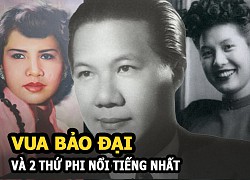 team youtube12:15:01 24/05/2021Although being a second wife was not allowed to get married, but thanks to her ingenuity, resourcefulness and ability to take care of the ancestor worship of the royal family, Bao Dai's "second wife" Mong Diep was always loved by Duc Tu Cung. love. On the contrary, the...
team youtube12:15:01 24/05/2021Although being a second wife was not allowed to get married, but thanks to her ingenuity, resourcefulness and ability to take care of the ancestor worship of the royal family, Bao Dai's "second wife" Mong Diep was always loved by Duc Tu Cung. love. On the contrary, the...

1 | 0 Discuss | Share

3 | 0 Discuss | Share

5 | 0 Discuss | Share

2 | 0 Discuss | Share
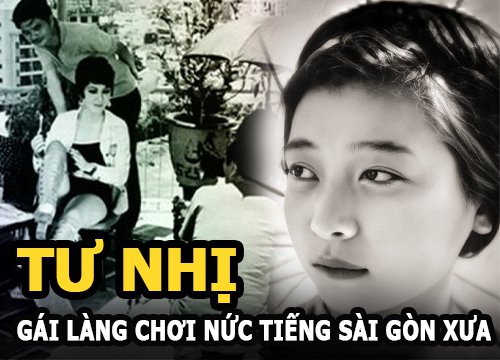
1 | 0 Discuss | Share
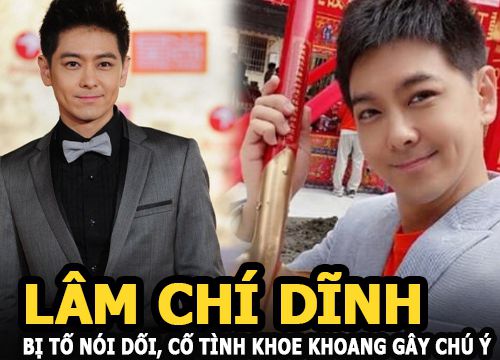
5 | 0 Discuss | Share
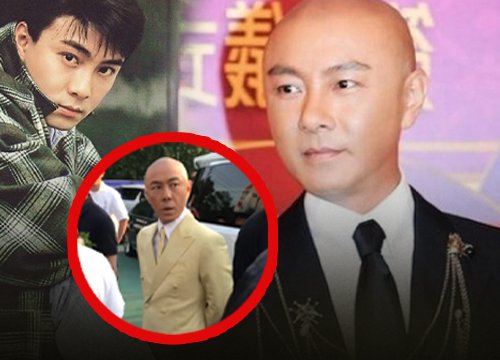
3 | 0 Discuss | Share

1 | 0 Discuss | Share

5 | 0 Discuss | Share
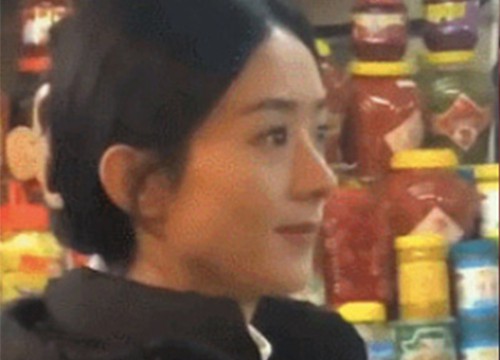
2 | 0 Discuss | Share

5 | 0 Discuss | Share

3 | 0 Discuss | Share




5 | 0 Discuss | Report